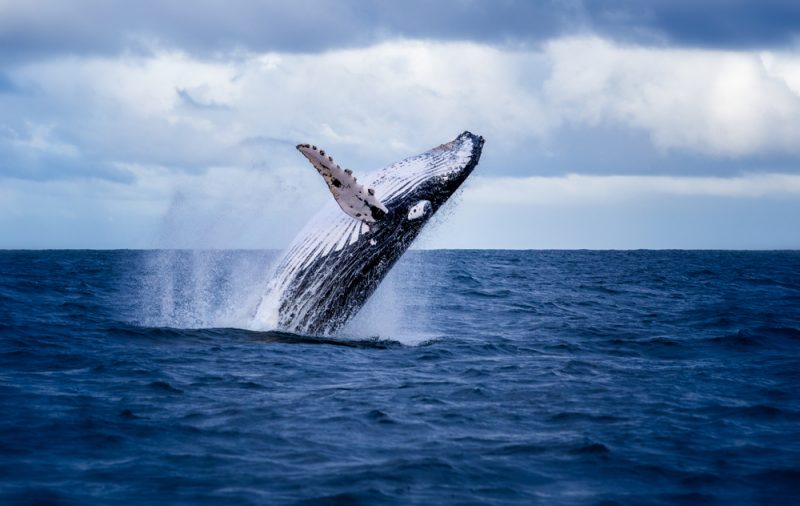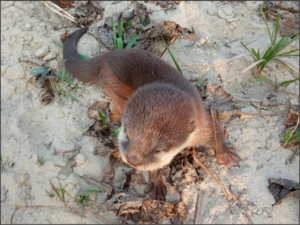In a world-first, scientists have had a 20-minute conversation with a humpback whale. The Whale-SETI (Whale Search for Extraterrestrial Intelligence) research team is working on communication systems to help find and communicate with extraterrestrial life.
Hello there, whale
The team played humpback whale calls through an underwater speaker and recorded responses. This particular “conversation” was with a 38-year-old humpback whale, dubbed Twain, in Alaska. After they played a humpback’s greeting signal, known as a “whup/throp,” Twain approached the boat, circled it, and responded with a greeting call.

A group of humpback whales. Photo: Shutterstock
The team played contact calls 36 times at varying intervals, and Twain matched the frequency of the calls. If the team waited 15 seconds to play a call, Twain would take 15 seconds to respond.
“We believe this is the first such communicative exchange between humans and humpback whales in the humpback language,” study lead Brenda McCowan said.
Researchers used AI to analyze Twain’s calls. By comparing the recordings to a database of whale sounds, and comparing them with human languages, the team could look for patterns to indicate that whale sounds are indeed a language.
Whales can repeat several patterns and make a variety of sounds. These sounds differ between species and populations of the same species.
A first step to chatting with ET
The development of languages in non-human species intrigues researchers. Communicating with whales and other non-human species is a first step to speaking with alien life forms.

A baby humpback whale. Photo: Shutterstock
The team chose whales because of their intelligence and auditory processing capabilities.
“Humpback whales are extremely intelligent, have complex social systems, make tools (such as traps out of bubbles to catch fish), and communicate extensively with both songs and social calls,” Fred Sharpe from the Alaska Whales Foundation explained.
This is relevant because scientists are making two assumptions about aliens. The first is that, just like Twain, they will be interested in communicating with us. The second is that extraterrestrial life will have sophisticated communication skills. Whales tick both boxes, making them the perfect test subjects.






